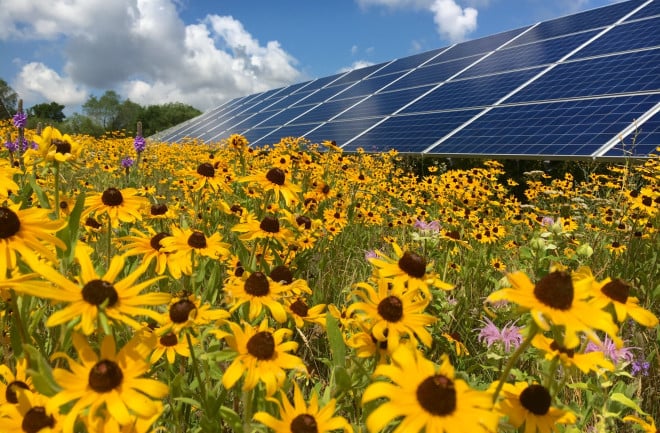
Developer Queequeg Renewables has partnered with environmental consultancy Biodiverse Consulting to bolster biodiversity measures across five solar and battery energy storage system (BESS) projects.
Biodiverse Consulting will specifically support Queequeg in achieving the necessary biodiversity net gain (BNG) for projects, a requirement mandated in The Environment Act in 2021 and came into force in February 2024.
The law ensures that developments affecting habitats for wildlife are left in a measurably better state than they were before by at least 10%.
The two companies also highlighted the potential solar panels can grant to improve local biodiversity. For instance, it can enable the establishment of wildflower meadows and grasslands, preserve and support new hedgerow growth, and promote and preserve new wetland habitats.
Commenting on the partnership, Chris Binns, UK planning director at Queequeg Renewables, said, “Well-designed and managed solar farms in particular contribute a range of important ecosystem features. They can support sustainable agriculture, regulate air quality, mitigate flood risk, generate new habitats, and reduce carbon emissions.
“The solar panels themselves are installed on posts, meaning there is minimal disturbance to the ground – typically only around one to 2% of the total site area. This means the rest of the land is available for sheep-grazing and to actively improve the local environment through wildflower meadows or re-wilding.”
Biodiversity increasingly integral to UK solar and BESS projects
The findings of both Queequeg Renewables and Biodiverse Consulting reiterate some of the conclusions Solar Energy UK made in a survey released in March 2024 dubbed Solar Habitat 2024: Ecological trends on solar farms in the UK.
The study emphasised that solar farms can become “safe havens for biodiversity” and play an “important role” in nature restoration. The study analysed a total of 87 solar sites in 2023 employing a standardised methodology, which Solar Energy UK helped develop alongside Lancaster University in 2022.
Their findings revealed that vulnerable and red-listed species, such as skylarks, are among the most common wildlife present on UK solar farms. Yellowhammers, linnets and starlings – all red-listed bird species – were also present at the observed solar sites.
On the ground, brown hares, a species under conservation concern, made up 40% of mammal observations across the 87 observed sites.

